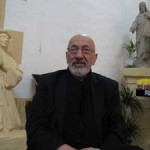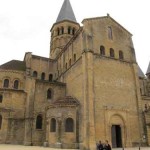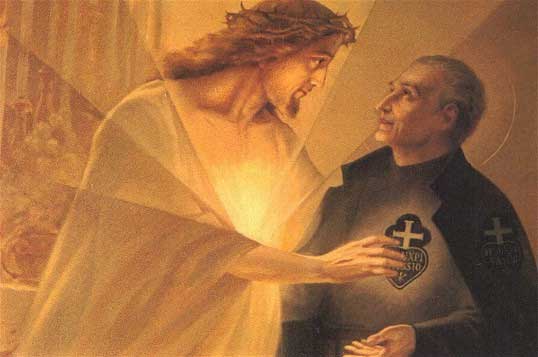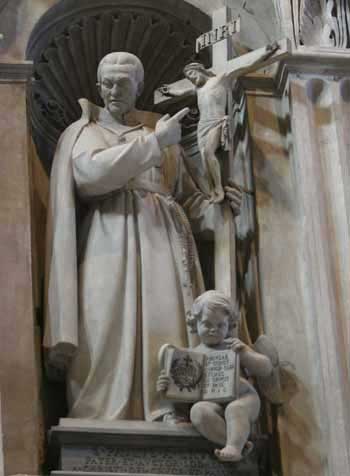In his general audience this morning, the Holy Father dedicated his catechesis to Jesus’ prayer in the context of His healing miracles, focusing particularly on the healing of the deaf man as narrated in the Gospel of St. Mark, and the raising of Lazarus.
The healing of the deaf man “demonstrates that the cures worked by Jesus were connected with the intensity of His relationships, both with others and with the Father”, the Pope said. “With a gesture the Lord touches the sick man’s ears and tongue; that is, the sites of his infirmity. … But the central point of the episode lies in the fact that Jesus, at the very moment He works the cure, directly seeks
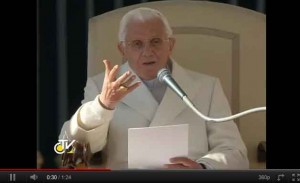 His relationship with the Father”, by looking up to heaven. “The narrative shows, then, that human involvement with the sick man led Jesus into prayer. His unique relationship with the Father emerges once again, His identity as Only-begotten Son. In Him, through His person, the healing and beneficial action of God is made present among us”.
His relationship with the Father”, by looking up to heaven. “The narrative shows, then, that human involvement with the sick man led Jesus into prayer. His unique relationship with the Father emerges once again, His identity as Only-begotten Son. In Him, through His person, the healing and beneficial action of God is made present among us”.
The raising of Lazarus also highlights this aspect of Jesus’ dual relationships, His concern for a suffering friend and His filial bond with the Father. “His sincere affection for His friend … is expressed by the fact that Jesus was deeply moved at the sight of the suffering of Martha and Mary, and of all Lazarus’ friends, and in His profoundly human tears as he approaches the grave”, the Pope explained. At the same time, Christ interprets His friend’s death “in relation to His own identity and mission, and the glorification awaiting Him. When He hears news of Lazarus sickness, He says: ‘this illness does not lead to death: rather it is for God’s glory, so that the Son of God may be glorified through it'”.
“The moment when Jesus prays directly to the Father before the tomb is the natural climax of the entire episode”. According to John the Evangelist “Jesus looked upward and said, Father I thank you for having heard me”. This phrase, Benedict XVI explained, “shows us that Jesus had not for a moment ceased His prayer for Lazarus’ life. That prayer was continuous, indeed it strengthened Jesus’ bond with His friend and, at the same time, confirmed His decision to remain in communion with the will of the Father, with His plan of love in which the sickness and death of Lazarus is the place in which the glory of God is made manifest”.
Trusting in God’s will
These episodes, said the Holy Father, help us to understand “that when we ask the Lord for something in prayer, we must not expect an immediate fulfilment of our requests, of our will; rather, we should entrust outsides to the will of the Father, reading events in the perspective of His glory, of His plan of love which is often a mystery to our eyes. Thus in our prayer, request, praise and thanksgiving should fuse together, even when it seems to us that God does not respond to our expectations. Abandoning ourselves to the love of God, which always precedes and accompanies us, is a fundamental principle in our dialogue with Him. … Beyond anything that God may give us when we invoke Him, the greatest gift He can give us is His friendship, His presence, His love”. The  giver is more precious than the gift.
giver is more precious than the gift.
“The concern Jesus, true God and true man, feels for others, especially the needy and suffering, … causes Him to turn to the Father. … But the opposite is also true: communion with the Father, constant dialogue with Him, causes Jesus to be attentive to the real-life situations of man, to which He brings the consolation and love of God”.
This profound bond between love for God and love for others must, the Pope concluded, also be part of our own prayers, which “open the door to God, teaching us how to abandon our own selves in order to come close to others, especially in moments of trial, bringing them consolation, hope and light”.
At the end of his catechesis the Holy Father spoke in various languages to greet the more than 7,000 pilgrims gathered in the Paul VI Hall. He expressed his particular appreciation to the people who had contributed to the restoration of the sculpture of “The Resurrection” by Pericle Fazzini, which adorns the Hall. “Following a period of painstaking efforts”, he said, “today we have the joy of being able to admire this work of art and faith in all its original splendour”.
Speaking then in Spanish, Benedict XVI addressed a delegation from the Mexican state of Puebla, expressing the hope that, “with God’s help, I will soon be able to visit you in your country”.
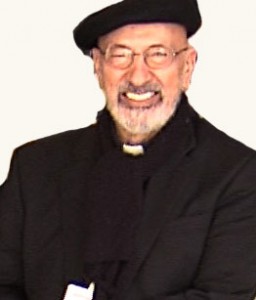
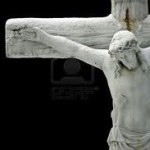 Msgr. Esseff spoke at a recent conference which was held in PA. in November 2011. In the 3rd talk he speaks about sinfulness. Our mistaken notions and what we should know. What are the traps, what will free us. How confession can bring us into right order.
Msgr. Esseff spoke at a recent conference which was held in PA. in November 2011. In the 3rd talk he speaks about sinfulness. Our mistaken notions and what we should know. What are the traps, what will free us. How confession can bring us into right order.

 His relationship with the Father”, by looking up to heaven. “The narrative shows, then, that human involvement with the sick man led Jesus into prayer. His unique relationship with the Father emerges once again, His identity as Only-begotten Son. In Him, through His person, the healing and beneficial action of God is made present among us”.
His relationship with the Father”, by looking up to heaven. “The narrative shows, then, that human involvement with the sick man led Jesus into prayer. His unique relationship with the Father emerges once again, His identity as Only-begotten Son. In Him, through His person, the healing and beneficial action of God is made present among us”.
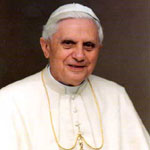

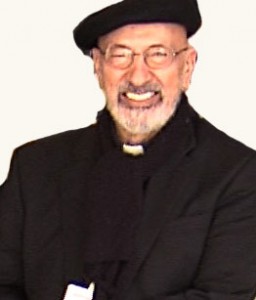
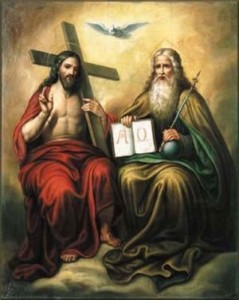
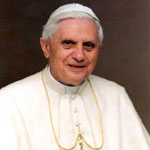



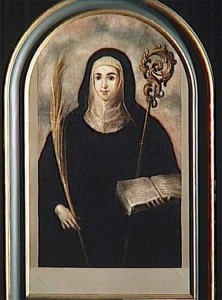

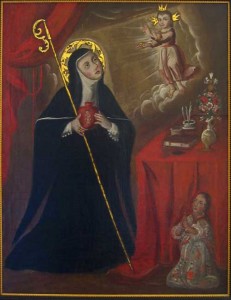
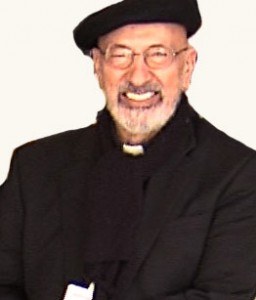
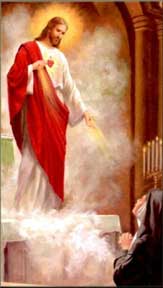 represented His love for humanity, and the thorns represented man’s sinfulness and ingratitude. Jesus informed her that her mission was to establish the devotion to His Most Sacred Heart, and He revealed
represented His love for humanity, and the thorns represented man’s sinfulness and ingratitude. Jesus informed her that her mission was to establish the devotion to His Most Sacred Heart, and He revealed 
